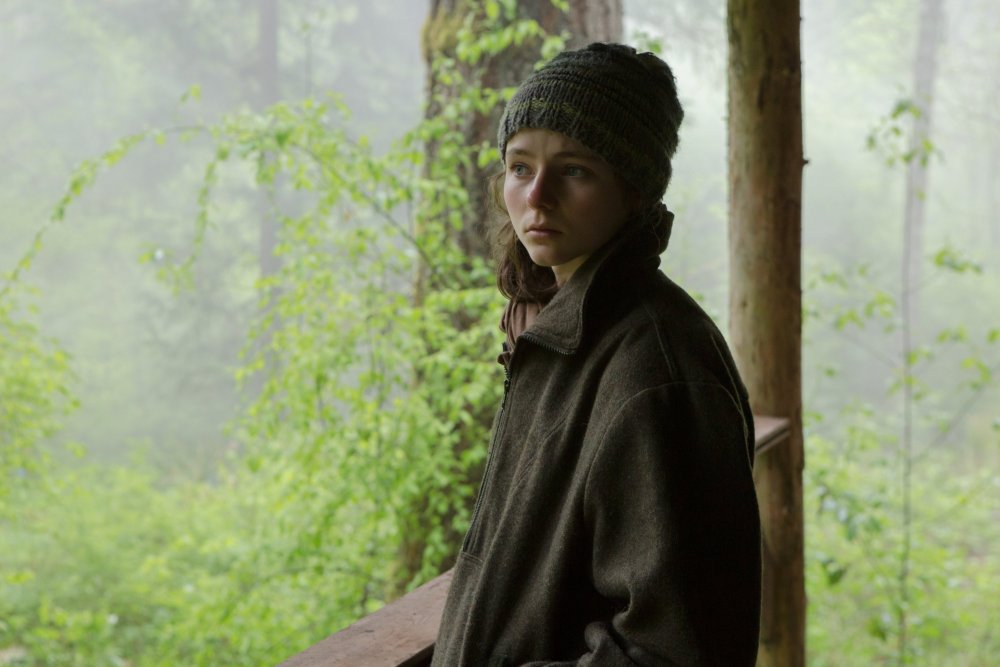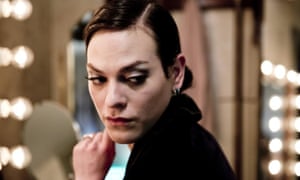The annual countdown which was particularly tricky this year given that the top three films were amongst the best I've ever seen. On another day these might have ended up in a different order. There is also still room for late drama given that before midnight tomorrow I am aiming to have seen two other films that will be contenders: Roma and Shoplifters. So there may be an addendum but for now here goes ....
1. The Favourite about which I have waxed lyrical previously. It absolutely requires your attention, preferably wearing a postmodern take on a periwig.
2. Leave No Trace Perfection. Incredibly moving yet utterly understated both in style and as a corrective to the predisposition to judge without taking the time to gauge where value resides for others. Everything is precisely measured right down to the very final image of a piece of bracken curled naturally but in such a way as to resemble a seahorse. The full resonance of that image will stay with me for some time.
3. Cold War about which I have also floated close to the ceiling. David Lean would have used this material to make a three and a half hour technicolour epic in the style of Dr Zhivago. Pawel Pawlikowski covers the ground in a brisk and economical 88 minutes of crisp black and white juxtaposing the romantic relationship of Zula and Wiktor and the entire history of Europe in the mid 20th century. What he has produced can only be described as magnificent.
4. A Fantastic Woman: An utterly gripping account of the very practical experience of prejudice towards trans women by society, government processes, the law, friends and family. The central performance is monumental.
5. Phantom Thread: Astounding. Perhaps the first, probably the only, psychological horror comedy scripted from a lost story by Ivy Compton-Burnett and directed from beyond the grave by Max Ophuls with an honourable mention to Douglas Sirk.
6. The Florida Project: An incredibly empathetic and engaging film about the precarious experience of being poor in the richest country on the planet.
7. First Reformed: Severe, restrained, austere and devastating. Of course Bresson, Bergman (and perhaps even Malick) are in there but for me its a tragi-comedy of the bleakest kind. The tragedy of despair arising from personal failings and a revulsion with humanity and a world of bigotry and stupidity but also the comedy of feeling that we are all ultimately absurd whilst simultaneously being desperate to express our struggles.
8. Faces Places: A masterpiece of humanist cinema which is playful, droll, delightful and very moving but has a steely sense of culture as emerging from the simple act of being or living in a place; the legacy of which lasts in the minds of those involved but can also be manifest for the appreciation of others, particularly as it becomes more fragile with the passing of time.
9. The Wild Pear Tree: A massively long film in Turkish which does little to disguise a love for the stylings of the 19th century Russian novel. Nothing as flimsy as an elegantly turned volume of Turgenev; we are in full on doorstop, arm breaker, closely typed Tolstoy mode. And like Tolstoy it is quite brilliant even as not a lot seems actually to happen. The same very dull man is still talking to one of the other very dull men but somehow it's completely hypnotic. Ultimately the sense is that digging a well that almost certainly will never be filled because there is no water source and writing a book that no-one reads are similar ways of coming to terms with what to do with your life. Along the way there is some stunning cinematography, some highly resonant imagery and a sense of something quite profound being expressed about our aspirations in life.
10. Angelo: A beautifully observed film about cultural appropriation and identity which is by turns intriguing, horrifying and simply very, very sad. Quietly devastating.









Comments
Post a Comment